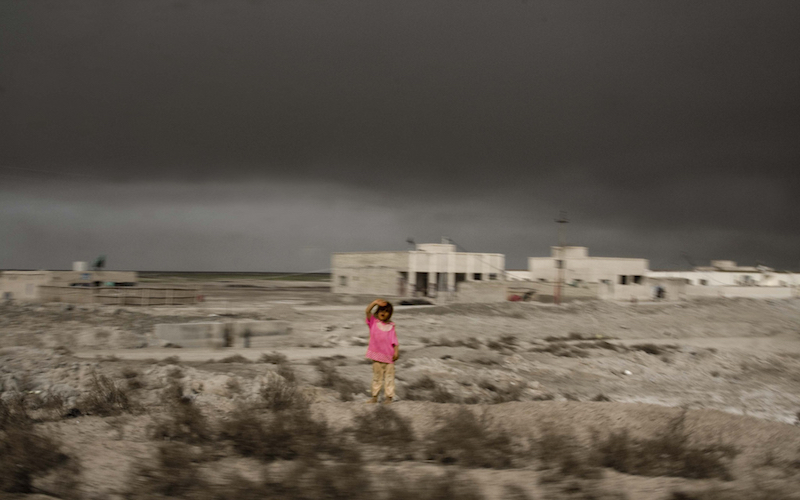
Arab Monetary Fund: Victim of Arab Disputes
The Arab Monetary Fund (AMF), founded in 1976, has failed to improve the macro-economic realities of the Arab world. Regionalization, trade, and cooperation remain low when compared to other regions. The AMF, with its limited resources and capacity, has achieved relative success in only one of its seven intended objectives. Delegating authority to the AMF by allowing the organization to play a more active role in the Middle East through training, advising and policy development would enable the organization to become a catalyst for positive change in the region. This approach would serve a dual purpose: increase effectiveness and relevance of the organization as well as centralize regionalization efforts under the umbrella of one organization.
Intra-state politics within the Arab world have been the main force behind the lack of regional integration in the Middle East. A regional environment of competition, fuelled by a plethora of factors such as economic disparity, geography, and regime types have weakened incentives for inter-Arab cooperation and regional interdependence. These factors have promoted an environment that characterizes a lack of Arab unity, the demise of Pan-Arabism, and regional inequalities. Thus the current political environment of the Arab world, by its present design, subconsciously generates an immense degree of uncertainty amongst the member-states of the AMF.
This political environment directly impacts the AMF as it struggles to gain legitimacy, promote compliance, and delegate authority in order to facilitate economic integration in the region. The challenge for the AMF, therefore, is to promote a strategy that incentivizes compliance while, at the same time, remodel the behavior of Arab states and their constituents.
Modifying or changing the behavior of the Arab States towards the AMF, via cooperation, is a crucial step towards achieving high levels of regionalization and trade in the region. Increasing cooperation between the AMF & member-states in terms of training and educational programs is a constructive approach.
These programs focus on smart economic practices that promote a shift from the import centric rentier-model that presently plagues the Arab world.
Focusing on diversifying the economies of the Arab states would help boost local industries and, in turn, help increase the demand for inter-Arab trade. Diversified economies facilitate the creation of small to medium size businesses which rely on trade of goods and services to succeed. As the domestic constituents come to grasp the benefits of trade, the demand for more favorable free-trade policies would, in turn, create domestic pressures on policy-makers and increase the reputational as well as political costs to politicians that oppose reforms.
By delegating more authority to the AMF, Arab states would benefit from the expertise of bureaucrats. The AMF could assist Arab states in developing strategies to balance their credit payments. This, in turn, would alleviate the debt-levels of struggling Arab states and stimulate growth. Increasing cooperation within the AMF and between Arab states will reduce the uncertainty amongst Arab states fueled by historical rivalries and competition.
Implementing these reforms requires direct AMF involvement in influencing the behavior of Arab states and their political elites. In the spirit of promoting training and education programs for bureaucrats within these states, the AMF would host multiple workshops, conferences, and strategy meetings on economic integration, financial management, and monetary regulations. These conferences are designed to monitor the progress of reforms within member states, share best practices, and provide opportunities for policy-makers, civil society groups, and NGOs to interact with one another as well as participate in these discussions and strategy forums.
Through the Secretariat of the League of Arab States, the AMF should request that the Arab League Council of Economic Ministers provide quarterly updates on the progress and challenges facing member-states in implementing AMF goals. Along with these updates and conferences, the AMF should implement a mandatory stipulation that member-states seeking loans, regardless of the type, must hold consultation with the AMF Board of Governors. These consultations would aim to develop a roadmap or framework for economic and monetary policy reforms.
Adopting these reforms is not without its cost, predominantly in terms of sovereignty. Arab states will need to allow the AMF to play a more pivotal role in developing new policies and strategies for improving trade, diversification and growth. Arab leaders and policy-makers will need to accept that the policies of the past decades have not brought the region closer together but, instead, created further disparity between oil and non-oil producing nations. The turbulence and poor economic performance that plagued the Arab world in recent years highlights the need for change. The Arab “Spring” revealed, however, that change will be tenuous, notably among states that have a strong central authoritarian regime with little to no turnover within leadership positions.
The Arab Monetary Fund provides a window of opportunity for the Arab world to seize the potential of financial and economic integration, forging a path for a better future.
